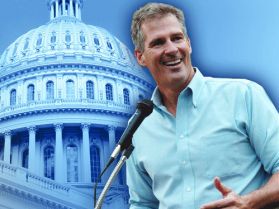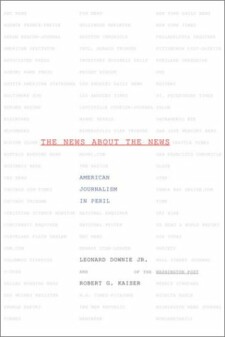One or the Other
From The New CriterionRather surprisingly to me, the Chilcot inquiry in Britain into the causes of the Iraq War has barely registered with the cis-Atlantic media. As their recriminations and second-guessing on this very subject were all the rage during the second administration of President George W. Bush, and as his successor gave early signs of appealing to his left-wing and anti-war base by hinting at inquiries of his own — possibly even criminal charges — it would have stood to reason that the MoveOn types would have been only too happy to belie their name and, instead of Moving On, park themselves before Sir John Chilcot’s committee, or at least among the vocal and hate-filled demonstrators outside. Even inside the committee room, there were shouts from the gallery in reply to testimony by the former Prime Minister, Tony Blair, that he was a murderer and a liar. The story was barely reported here, though it was all over the papers in Britain — which, after all, had only been a junior partner in the war.
And that was part of the reason for the disparity. For much of the British media, Mr Blair’s having willingly played Robin to Mr Bush’s Batman, or Tonto to his Lone Ranger, was a far worse sin than having allegedly “sexed up” the terrorist threat from Saddam Hussein in order to exaggerate the urgency of going to war. That helps to explain why the level of the British media’s hatred for Mr Blair today appears to exceed even that for Mr Bush in this country at the height of the war, something that would hardly have seemed possible. In both cases, of course, some very hard things have been said, but for some time now, it seems, the American media have preferred to forget all about President Bush, while the hatred of the British media for the former Labour Prime Minister still burns brightly.
I tried following the extensive British press coverage of the inquiry for a while, but everywhere in it the presumption of guilt on the part of Mr Blair (or “Bliar,” as the demonstrators had it) was overwhelming. The only word of sympathy or generosity of spirit I can remember came from the always interesting Daniel Finkelstein in The Times who pointed out that Churchill himself with his warlike defiance of the Nazis in 1940 was a similarly isolated figure and would have been viewed very differently by history if the war had been lost.
You cannot judge whether Churchill was right simply by noting that, to use a George Formby phrase, things “turned out nice again”. Victory might have come through dumb luck after pursuing a course of reckless irresponsibility. Using hindsight doesn’t help. Without it you are left with two things. First, what was the probability of a good outcome or, conversely, a bad one if Churchill’s policy was followed? Second, what were the consequences of good or bad outcomes? Churchill’s genius was that, at a very early stage and unlike almost anyone else, he knew the answer to not just one, but both these questions. He realised not simply that the probability of victory was tiny (others — Halifax, Chamberlain, most Tory MPs — could see that), but also that the consequences of defeat or even a negotiated peace were horrendous. It was the combination that made a policy of “victory at all costs” the correct one.
This doesn’t mean that Mr Blair was in the Churchillian league as a national leader, or even that he was right — or wrong — about Iraq. It only means that it is likely that the Chilcot inquiry “will not establish the one thing that was central to Churchill’s judgment. It won’t ask or establish what would have happened if we had not acted. It won’t do this partly because it is very hard to do. You end up speculating. But also because human beings are prone to what is known as omission bias. We tend to judge things that happen because we made them happen more harshly than things that happen because we merely knowingly let them do so. We prefer sins of omission to those of commission.”
Boy, do we ever! The rest of the British media appeared to believe that Sir John’s purpose ought not to have been to inquire into the government’s behavior but to shame (at least) its leader, and their fury when Mr Blair himself appeared before the committee and refused to be contrite was astounding. “Unrepentant, unforgiven, Blair says: ‘I’d do it again’” headlined the newspaper for which Mr Finkelstein writes — as if the question of the guilt for which Tony Blair was “unrepentant, unforgiven” were itself a settled issue. And, for most of the educated classes in Britain, it is, too, which led to a lot of amateur psychologizing by those in the media there, as it so often does here, by those who are well-paid to explain the psycho-pathological roots of political behavior of which they disapprove. I was particularly struck by the opinion of another Times columnist, Matthew Parris, who I remembered had once solemnly declared Mr Blair, when he was still in office, to be insane, that the explanation for his shameless and stiff-necked refusal to repent for having sent British troops to war in Iraq was to be found in the fact that, as he put it with supererogatory italicization, “Tony Blair believes that all bad people are on the same side.” That is to say, that by lumping together Saddam Hussein with other state- and non-state sponsors of terrorism, the former PM revealed that he was, not to put too fine a point on it, a simpleton.
Tony Blair is a Manichean, or dualist. He believes that the Universe is best understood as an eternal struggle between the forces of good and evil, in contention for dominance. Christians are supposed to believe that the battle is already won, and Mr Blair’s dualism is (paradoxically) closer to Islamic fundamentalism than to the Gospels. For Mr Blair at least “Axis of Evil” was not just a Bushite soundbite: it was a profound philosophical insight into the meaning of world history. Once you understand this, there is no arguing with him.
I would have thought that you would have to be a simpleton yourself to believe anything so preposterous as this, but the author, a former conservative Member of Parliament and entertaining Parliamentary sketch-writer was certainly no dummy. If not simple, he is simply the victim, as he imagines Mr Blair to be, of his “world view” — a world view in which the one sempiternal certainty is that not only is there no “eternal struggle between the forces of good and evil” but also that there is no such temporal struggle either. Even to use the word “evil” is to suggest a lack of intellectual fiber that marks a man, among the clubby British élites, as not being “one of us.” Mr Parris’s allusion to an ancient Christian heresy in the term “Manichean,” also suggested that what lay behind the British media’s all-but unanimous hostility (to put it no stronger) to Tony Blair, was not his going to war or even his palling up with George W. Bush — though no one should underestimate the role in his treatment of British anti-Americanism — but, rather, his not being the kind of sophisticate that British people expect their leaders to be.
If I am right about this, it might also explain why it has been Mr Blair and not former President Bush who has lately been on the receiving end of so much media hatred. For no one ever expected that kind of cheap sophistication from President Bush. He was always an unashamed religious believer and once claimed that his favorite political philosopher was Jesus. Though Mr Blair was known to be a professing Christian himself, the abrupt intervention in 2003 of his then “spin-doctor”, Alistair Campbell, when an American journalist had asked him about his faith— “We don’t do God” — was thought at the time to be the definitive statement of the British political establishment’s view of the subject. Since leaving office in 2007, Mr Blair has converted to Roman Catholicism (his wife’s faith), however, which must make it clear, at least to Matthew Parris, “that Mr Blair really does do God” — than which it is hard to imagine any moral failing to be more damning in his eyes or in those of the media consensus.
Mr Parris has also written several columns expressing his own militant atheism, and his scorn for those who are so weak-minded as to believe in God or religion of any kind, but that in my view is merely adventitious. It is still possible to profess Christianity and be a decent human being. Conversely, the contempt he feels for the intelligence of Tony Blair is almost certainly shared even by many who are agnostic or whose beliefs are shared with most of those in the mainstream churches of Britain. What they can’t get over is the idea of evil. Whatever else is true, that cannot be true. It would mean the destruction of their own world view, which depends on something like the reverse of the view attributed by Matthew Parris to Tony Blair: not that all bad people are on the same side but that the good and bad in all of us means that there are no sides. Or, paradoxically, that the only two sides that matter are the clever and sophisticated people like themselves — let us call them “good” — and the stupid and unsophisticated ones who believe in “evil.” What, I wonder, should we call them?
 |
If this view of the world seems just a trifle “Manichean” itself, it is not one with which we are entirely unfamiliar in the United States of America. It may still be possible for President Obama to “do God” in a way that no British prime minister could allow himself to be caught doing, but the media consensus here is fully up to the scorn displayed by the British equivalent for the stupidity of those with whom it disagrees. A striking example was provided by the reaction of certain opinion leaders to the election in January of the Republican, Scott Brown, to the senate seat held for the last 47 years by the late Edward Kennedy, a Democrat. So cataclysmic was the election of a Republican to the senate from Massachusetts — and to the Kennedy seat! — that these sections of the media were at a loss to explain it except by attributing to the same people who had shown their intelligence by voting for the President just over a year ago a sudden, inexplicable and precipitous drop in IQ.
Most striking of all, perhaps, was Jacob Weisberg in Slate who saw the newly-elected Senator Brown as just one symptom of “our political paralysis” for which, he thought, the “biggest culprit” was “the childishness, ignorance, and growing incoherence of the public at large.” This kind of thing would once have been considered a joke, as in Brecht’s famous poem, “Die Lösung”
After the uprising of the 17th June
The Secretary of the Writer’s Union
Had leaflets distributed in the Stalinallee
Stating that the people
Had forfeited the confidence of the government
And could win it back only
By redoubled efforts. Would it not be easier
In that case for the government
To dissolve the people
And elect another?
If Mr Weisberg had had those words rattling around somewhere in the back of his memory, he might have been saved the embarrassment of writing as follows — for rhetorical purposes including himself in the “we” whom he imagines as living in “Candyland” —
We want Washington and the states to fix all of our problems now. At the same time, we want government to shrink, spend less, and reduce our taxes. We dislike government in the abstract: According to CNN, 67 percent of people favor balancing the budget even when the country is in a recession or a war, which is madness. But we love government in the particular: Even larger majorities oppose the kind of spending cuts that would reduce projected deficits, let alone eliminate them. Nearly half the public wants to cancel the Obama stimulus, and a strong majority doesn’t want another round of it. But 80-plus percent of people want to extend unemployment benefits and to spend more money on roads and bridges. There’s another term for that stuff: more stimulus spending. The usual way to describe such inconsistent demands from voters is to say that the public is an angry, populist, tea-partying mood. But a lot more people are watching American Idol than are watching Glenn Beck, and our collective illogic is mostly negligent rather than militant. The more compelling explanation is that the American public lives in Candyland, where government can tackle the big problems and get out of the way at the same time.
Yeah, that’s Candyland all right. Imagine being cheap, non-intrusive and efficient all at the same time! What are these idiots thinking? Meanwhile, J. Weisberg is living in a land where only himself and a few other geniuses who are paid for sharing their opinions with the public know what’s what and everybody else is childish, ignorant and incoherent. You may be the judge of which sounds more unreal. Obviously, a politician takes greater risks than a pundit in attacking the voters’ intelligence, but President Obama appeared to have given the cue to the pundits in his State of the Union address when he reiterated his belief in the Democrats’ health-care bill — in spite of the evidence that its unpopularity had contributed to the Republican victory in Massachusetts — but added: “Still, this is a complex issue, and the longer it was debated, the more skeptical people became. I take my share of the blame for not explaining it more clearly to the American people.” Silly me, to have given you lot credit for being able to understand such a complex issue.
Even this, thought Charles Blow in The New York Times, gave people too much credit. “People want clear goals, clearly defined and clearly (and concisely) conveyed. They’re suspicious of complexity. . .The president must communicate within the environment he inhabits, not the one he envisions. The next time he gives a speech, someone should tap him on the ankle and say, ‘Mr. President, we’re down here.’” This was actually a promotion in Mr Blow’s eyes, however. His reaction to Scott Brown’s victory in Massachusetts the week before had been to write “Welcome to the mob: an angry, wounded electorate, riled by recession, careening [sic] across the political spectrum, still craving change, nursing a bloodlust. . . It seems as if Obama and the Democrats made the mistake of believing that a heart once won was forever won, that people would be patient, and that the mob would accept their reasoning for lack of results. They were wrong. The mob is fickle. And it’s back with a vengeance.”
There was much more in the same vein. James Surowiecki in The New Yorker noted that “whereas the economic populism of the eighteen-nineties and the right-wing cultural populism of recent years represented reasonably coherent ideologies, this new populism has stitched together incompatible concerns and goals into one ‘I’m mad as hell’ quilt. The people may have spoken. It’s just not clear that they’re making any sense.” He points out that “a survey of voters who supported Obama in 2008 but voted for Scott Brown in the recent Massachusetts Senate race found that forty-one per cent of those who opposed health-care reform weren’t sure whether reform went too far or not far enough. In short, they don’t know why they’re against reform; they just are. It’s a bit like Marlon Brando in The Wild One. Asked what he’s rebelling against, he says, ‘Whaddya got?’”
There was a time, not so long ago, when Marlon Brando, especially Marlon Brando in The Wild One, was as cool as Barack Obama. Now he’s just a by-word for mindless populism. How long before poor Mr Obama meets the same fate? I think this very unfair. If people don’t like health-care reform for reasons full of subtlety and “nuance” — to pick a word at random that the anti-populists use to describe one of the intellectual faculties that the populists haven’t got — and they are given two choices by a pollster, (1) does the bill now under consideration go too far or (2) does it not go far enough, obviously they are going to give different answers. This doesn’t mean that “they don’t know why they’re against reform.” Anybody may know why they’re against (this) reform: because it is a bad bill that is being sold as a response to a “health-care crisis” they don’t believe in while they do believe, rightly in my view, that it will add to an already exploding federal budget deficit. Does that go too far or not far enough? Both, I would say.
Much of the subtext to the viewing-with-alarm that accompanied the election of Scott Brown involved Sarah Palin and the tea-partiers. This was what made Kurt Andersen in New York magazine worry that democracy itself was at risk from — democracy! How wise had been the Founding Fathers constitutionally to limit the scope for people’s democratic impulses.
They wanted to make sure the mass of ordinary citizens, too easily stimulated by some irregular passion or misled by the artful misrepresentations and thus prone to hysteria like, say, the rabble who’d run amok in Boston Harbor be kept in check. That’s why they created a Senate and a Supreme Court and didn’t allow voters to elect senators or presidents directly. By the people and for the people, definitely; of the people, not so much. So now we have a country absolutely teeming with irregular passions and artful misrepresentations, whipped up to an unprecedented pitch and volume by the fundamentally new means of 24/7 cable and the hyperdemocratic web. And instead of a calm club of like-minded wise men (and women) in Washington compromising and legislating, we have a Republican Establishment almost entirely unwilling to defy or at least gracefully ignore its angriest, most intemperate and frenzied faction the way Reagan did with his right wing in the eighties and the way Obama is doing with his unhappy left wing now
Praising Ronald Reagan for his moderation has now become a favorite trick of some on the left who, thirty years ago, regarded him as the most dangerous of extremists. I remember. I was there. I was accused of voting for a half-wit cowboy determined to blow up the world and thereby seriously calling into question my own intelligence. Maybe the problem isn’t that the world is divided either into goodies and baddies or into intelligent and unintelligent people. Maybe the problem is that, as Matthew Parris’s example shows, we just can’t help ourselves from lining up behind one or the other of these two propositions.
Discover more from James Bowman
Subscribe to get the latest posts to your email.





